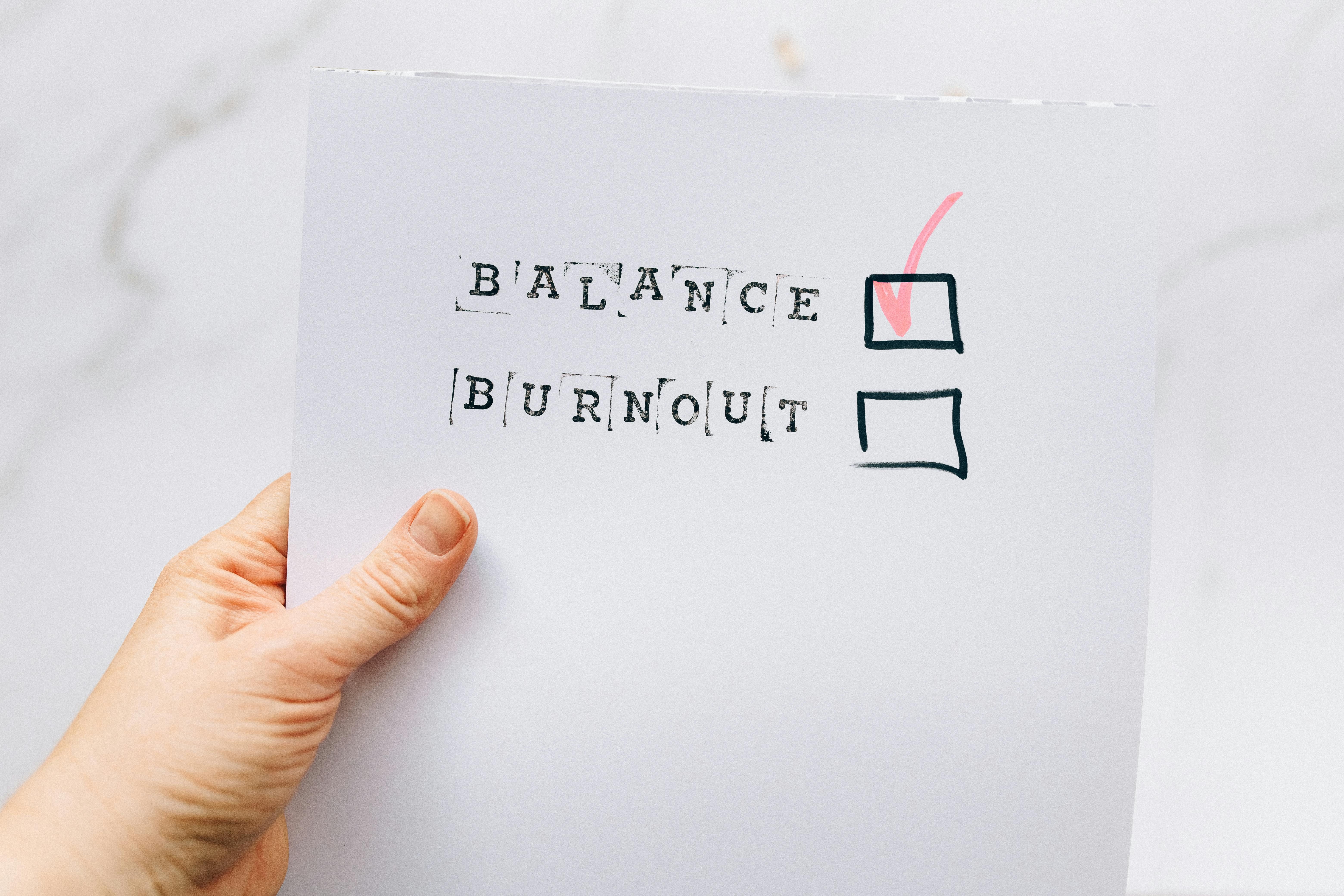What is Burnout?
Burnout is a state characterized by physical, mental, and emotional exhaustion that arises from prolonged exposure to stress.
It happens when individuals feel overwhelmed, struggle to meet constant demands, and find it difficult to cope with ongoing pressure.
Burnout is increasingly common worldwide, with rising statistics highlighting its significant effects on productivity, relationships, and overall well-being.
The World Health Organization (WHO) describes burnout as a condition stemming from chronic workplace stress that has not been effectively managed. It encompasses three main components: exhaustion, a sense of detachment from one’s job, and a decrease in professional effectiveness.
Burnout is more than just a fleeting feeling of tiredness; it is a serious condition that can affect every aspect of a person's life.
Though we can’t escape stress entirely, it becomes problematic when it overwhelms our ability to cope, putting our well-being at risk.
Causes of Burnout
Burnout doesn't happen overnight; it's a slow process that builds up from ongoing stress. Here are some common factors that contribute to it:

- Excessive Demands: Being constantly overwhelmed by high expectations and pressure whether from work, home, or social situations without adequate breaks can lead to both physical and mental fatigue.
- Unclear Roles or Expectations: When responsibilities are not clearly defined in any part of life - be it family, personal, or professional, it can create confusion and stress as individuals try to navigate vague or changing expectations.
- Lack of Support: Feeling isolated or unsupported during challenging times, whether from family, friends, coworkers, or any social network, can significantly contribute to burnout.
- Imbalance Between Responsibilities and Personal Time: Struggling to balance various life commitments with personal relaxation or leisure can result in prolonged stress and fatigue.
- Lack of Recognition or Reward: Not feeling valued for one’s efforts whether in work, relationships, or personal development can lead to dissatisfaction and ultimately contribute to burnout.
What Does Burnout Look Like?
Burnout can present itself in various forms, influencing both mental and physical health. Some typical signs include:

- Neglecting personal needs and responsibilities: People may lose interest in self-care or fulfilling their obligations, which can lead to heightened stress.
- Compromising core values: Burnout often results in a diminished passion or integrity in one’s work or personal life, leading to feelings of frustration.
- Frustration and aggression: A growing sense of helplessness can emerge, resulting in irritability and a short temper.
- Feelings of emptiness: A deep sense of disconnection often leads to a lack of motivation.
- Withdrawal and isolation: The urge to avoid social interactions, whether with family, friends, or colleagues, becomes more prevalent.
- Physical and mental breakdown: Chronic stress can lead to symptoms such as headaches, fatigue, and more like anxiety or depression.
- Cynicism and detachment: A person may begin to feel disconnected from their work or those around them, which can lead to a general sense of apathy.
How to Avoid Burnout
While it’s impossible to completely eliminate stress from our lives, we can take steps to prevent burnout from taking over. Here are some tips for protecting your well-being:

1. Prioritize Your Well-being
Make sure to carve out time each day for activities that rejuvenate you. Whether it’s spending time with loved ones, indulging in a hobby, or simply unwinding, these moments are essential.
2. Cultivate Quality Relationships
Nurturing strong, supportive relationships can serve as a valuable buffer against stress. Surround yourself with people who inspire and uplift you.
3. Self-care
Focus on nurturing your body and mind through balanced nutrition, sufficient sleep, and regular exercise. Taking breaks, even brief ones, throughout the day can also help recharge your energy.
4. Set Boundaries
Recognize your limits. Establish realistic expectations for yourself and others, and don’t hesitate to say no when you’re nearing your breaking point.
Where Can I Seek Further Help?
It’s important to recognize that burnout is an issue that cannot be "fixed" with just a few quick tips. It requires a comprehensive approach and, at times, professional intervention.
If you're noticing signs of burnout, it’s vital to seek help. Our licensed professionals, such as therapists or counselors, can offer the necessary support and tools for recovery. You can start with an initial consultation or book your first session.

Seeking professional help ensures that you address the underlying causes and develop strategies to prevent future burnout.
In conclusion, remember stress is a part of life, but how we respond to it makes all the difference in maintaining our mental, emotional, and physical well-being.
Disclaimer:
At Tranqbay, our goal is to enhance well-being by providing mental health care through expert services. Our articles are carefully researched and verified for accuracy with insights from mental health professionals and reputable organizations. They are designed for educational purposes and should not be considered a replacement for professional medical advice, diagnosis, or treatment.



